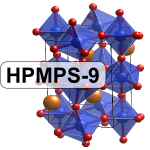Are silicate dynamos possible? So far, planetary dynamos seated in silicate material are unknown. Several lines of evidence motivate the consideration of a silicate dynamo in the early Earth and in super-Earth exo-planets: 1) paleomagnetic evidence of a very early dynamo-generated field 2) models of the eartly thermal state of Earth in which the mantle is too hot to permit a core-generated field, and 3) the possibility of a deep, thick and long-lived basal magma ocean. The key requirement is that the electrical conductivity, s of silicate liquids be sufficiently large at the relevant high pressure-temperature conditions (s >1000 S/m). Despite its importance, s of silicate liquids is unknown above a few GPa in pressure, where measured values are far too small to support dynamo activity. However, observations of reflectivity from oxide liquids in shock wave experiments suggest a different mechanism of conductivity at high pressure (electrons rather than ions). We have used ab initio molecular dynamics simulations to compute from first principles the value of s at extreme conditions in systems with compositions that are simple (SiO2) and rich (MgO-FeO-CaO-Al2O3-Na2O-SiO2). We use DFT+U with and without spin polarization combined with the Kubo-Greenwood formula. We find that the value of s exceeds the minimum requirements and that a silicate dynamo seated in a basal magma ocean is viable. We also find that the electrical conductivity shows a remarkable non-monotonic dependence on pressure that reveals connections to the underlying atomic structure, and highlights broken charge ordering as a novel compression mechanism.
|
|
|
Author index > Scipioni RobertoElectrical conductivity of silicate liquids at extreme conditions and planetary dynamos
1 : Department of Earth Sciences, University College London
(UCL)
Gower Street, WC1E 6BT, London -
United Kingdom
2 : Sandia National Laboratories
(SNL)
|
| Online user: 1 | RSS Feed |

|

 PDF version
PDF version